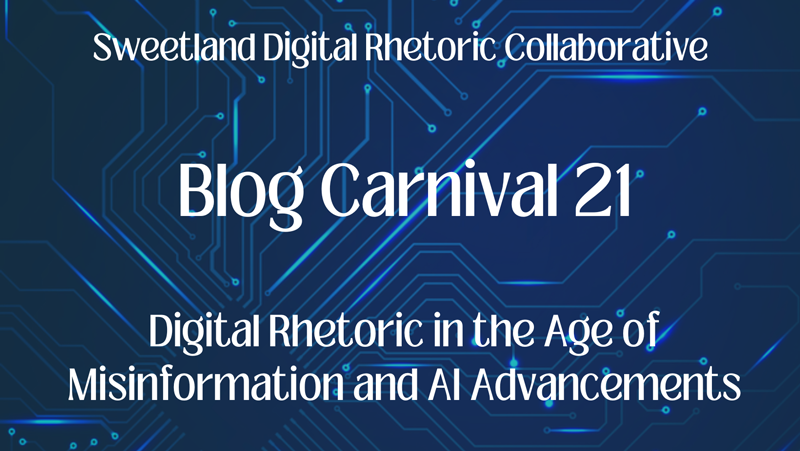For several years now, the need to weed out the truth from misinformation online has continued to grow. A major factor in this need is the advancement of artificial intelligence (AI). GPT (Generative Pre-Trained Transformer) is “a language model developed by OpenAI that is capable of producing response text that is nearly indistinguishable from natural human language” (Lund and Wang).
Reactions to advancements in AI’s abilities to mimic human discourse have ranged from excitement to anxiety. Some have embraced it, like the creators of South Park. The March 9, 2023, episode, “Deep Learning,” credits writers Trey Parker and ChatGPT. Credits of the episode also claim the voice of ChatGPT was “created using Play.ht’s AI-powered text-to-voice generator.” Parker and Matt Stone have also founded their own AI entertainment studio (Deep Voodoo) capable of producing deep fake technology and “synthetic media projects.” Others are cautious and uneasy about how AI will be used to spread misinformation in the 2024 elections. Because the technology is relatively easy to use and available to anyone, political commentators have stated the election will be “a Wild West of campaign claims and counter-claims, with limited ability to distinguish fake from real material.”

In this Blog Carnival, we wish to open a forum for discussing the roles of digital rhetoricians in the design, development, and deployment of various methods in determining accuracy and authenticity in the face of vast amounts of misinformation and the advancements in AI for various contexts, including professional, educational, social, and political settings.
Questions/Topics (may include, but are not limited to):
- How might we critically assess platforms of misinformation and AI advancements, such as ChatGPT?
- How might ChatGPT or similar AI develop rhetorical awareness?
- How can we combat platforms of misinformation?
- How might we use these platforms to our advantage?
- How does misinformation and/or the evolution of AI refigure our writing and pedagogy practices?
- How have you integrated ChatGPT or similar AI into the classroom? What rhetorical theory and frameworks do you employ to help students analyze and produce with such technologies?
Timeline/Submission
- 100-word proposal – June 30, 2023
- Acceptance notices – July 5, 2023
- Full blog entries – July 19, 2023
- Final publication – July 24, 2023
If you’re interested in contributing to this blog carnival, please submit your contact information and 100-word proposal to this Google form (link) by June 30, 2023.
Full blog posts will be due approximately two weeks after you’ve been notified your proposal is accepted. When completed, the blog post should be about 750-1000 words, but we do have some flexibility as we’re on a digital platform. Please feel free to include visuals or other multimedia.
Contact
If you have any questions or if you have a submission in mind but need more guidance, please do not hesitate to reach out to the editor, Laura L. Menard (lmenard@bgsu.edu).
References:
Hale, Tom. “South Park Creators Use ChatGPT to Co-Write Episode about AI.” IFLScience, 20 March 2023, https://www.iflscience.com/south-park-creators-use-chatgpt-to-co-write-episode-about-ai-68059
Lund, Brady D. and Ting Wang. “Chatting about ChatGPT: How may AI and GPT impact academia and libraries?” Library Hi Tech News, Vol. 40 No. 3, pp. 26-29. https://doi.org/10.1108/LHTN-01-2023-0009
West, Darnell. “How AI Will Transform the 2024 Elections.” Brookings, 3 May 2023, https://www.brookings.edu/blog/techtank/2023/05/03/how-ai-will-transform-the-2024-elections/
